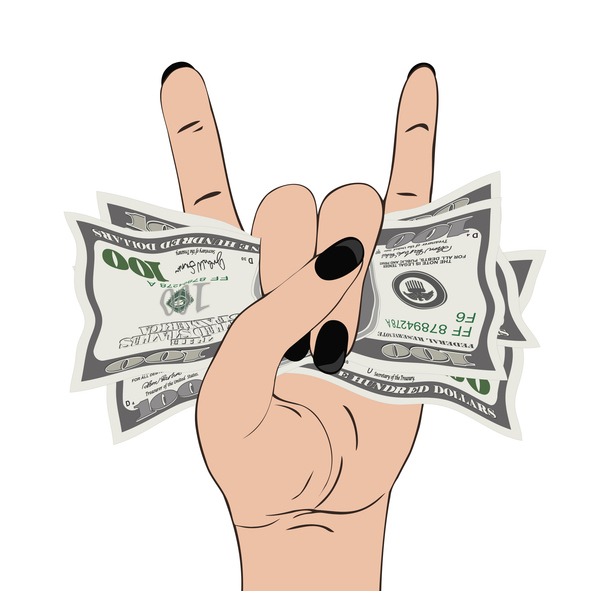For independent musicians, securing funding has always been a significant hurdle. Whether for producing an album, organizing a tour, or investing in new equipment, the financial roadblocks often seem insurmountable. But 2024 is shaping up to be a promising year for independent artists looking to tap into grant opportunities. With programs from organizations like the National Endowment for the Arts (NEA) and numerous private foundations offering substantial support, independent musicians have more funding options than ever before. This guide will help you navigate the landscape, highlighting key grants, application tips, and insights on how to make your proposal stand out.
Key Grants for Musicians in 2024
1. National Endowment for the Arts (NEA)
The NEA remains a leading source of funding for independent artists, offering several grant programs that focus on creative projects across genres. Music-related grants can be applied toward production costs, collaborative work, or educational initiatives. The Grants for Arts Projects is a particularly beneficial program, offering up to $100,000 for music-focused projects that engage communities and demonstrate artistic excellence.
What they’re looking for:
The NEA favors projects that have a strong community or educational component, alongside artistic merit. Demonstrating the potential for public engagement and cultural impact is crucial.
Tip: Clearly articulate how your project will benefit the community or contribute to the broader music ecosystem. A well-defined vision for outreach or engagement will help your application stand out.
2. Foundation for Contemporary Arts (FCA) Emergency Grants
The FCA offers emergency grants for artists facing unforeseen expenses related to their creative work. Independent musicians can apply for grants to cover unanticipated costs such as equipment repair, venue rentals, or last-minute performance travel.
What they’re looking for:
The FCA is interested in supporting artists with an urgent need, focusing on innovative, original work. They prioritize experimental or forward-thinking music projects.
Tip: Highlight the immediacy and necessity of the funding. Emphasize how your project pushes boundaries creatively.
3. Mid Atlantic Arts Foundation (MAAF) Jazz Touring Network
For jazz musicians, the MAAF Jazz Touring Network provides grants to support touring across the mid-Atlantic region. This program helps emerging and established jazz musicians reach new audiences while covering significant touring expenses.
What they’re looking for:
This grant focuses on live performance and audience development. Applicants must demonstrate how their tours will engage new listeners or reach underserved communities.
Tip: Develop a compelling narrative about how your tour will inspire new audiences and contribute to the jazz genre. If possible, partner with venues that align with the MAAF’s goals of accessibility and community engagement.
4. New Music USA
New Music USA offers grants to independent composers, musicians, and ensembles for projects that focus on original music creation. Funding ranges from $2,000 to $15,000, with the organization looking to support boundary-pushing work that fosters artistic growth.
What they’re looking for:
New Music USA supports artists who are focused on creating new, original music. They favor projects that explore innovative ideas or collaborations.
Tip: Emphasize the unique elements of your music. Be clear about how your project contributes to the evolution of your genre and how it aligns with New Music USA’s goal of fostering cutting-edge artistry.
5. The Aaron Copland Fund for Music
This foundation offers grants that support the performance, creation, and recording of classical music. Independent musicians and small ensembles can apply for funding to support performances or new compositions, particularly those that promote contemporary classical music.
What they’re looking for:
The foundation seeks to support artists and projects that push the boundaries of contemporary classical music. They value work that seeks to bring new music to wider audiences.
Tip: Showcase your dedication to expanding the classical genre. Be specific about how your project will reach audiences unfamiliar with contemporary classical music.
Crafting a Standout Application
With competition for grants fierce, the quality of your application is crucial. Here are some strategies to ensure your proposal rises to the top:
1. Tell a Compelling Story
Funders want to know not only about your music but also about your journey and the impact your project will have. Explain why your project matters, both to you and to the community it will engage. Personalize your application by highlighting what sets you apart as an artist.
2. Define Your Project’s Purpose
A vague project description will likely be dismissed. Be specific about the goals of your project, its timeline, and the outcomes you expect to achieve. Funders appreciate clarity and purpose.
3. Emphasize Community Engagement
Many grants prioritize projects that have a broader community or cultural impact. Whether it’s through performances, workshops, or collaborations, explain how your project will engage with and benefit others.
4. Demonstrate Financial Responsibility
Grant providers want assurance that their funds will be used effectively. Submit a clear and realistic budget, showing exactly how the grant money will be allocated. Transparency about your financial needs and how you’ll manage the funds is essential.
5. Get Strong Letters of Support
Endorsements from collaborators, mentors, or respected figures in the music industry can bolster your application. Letters of support should highlight your professionalism, artistic merit, and the value of your proposed project.
Conclusion: Seize the Opportunities in 2024
With more grant opportunities available in 2024, independent musicians have the chance to secure funding that can elevate their careers. By identifying the right grants, crafting a compelling application, and demonstrating the impact of your work, you can turn these funding opportunities into tangible support for your creative journey. Stay persistent, and remember that every application helps refine your approach, increasing your chances of success in the long run.
Read more advice articles to guide you through your journey on Music Industry Weekly.








